MORGANTOWN, W.Va. (WV News) — As West Virginia University President E. Gordon Gee rides off into the sunset of a remarkable 40-plus career in higher education, he leaves behind a university much different than the one he first served as president in the 1980s and even the one he came back to in 2014.
In an interview with WV News, as well as his last State of the University address in October, Gee reflected not only on past achievements but also WVU’s enduring and expanding role in driving economic development across all 55 counties.
Rooted in the land-grant tradition and guided by four pillars — education, healthcare, prosperity and purpose — WVU has become a vital economic engine for North Central West Virginia and the entire state.
“The university and WVU Medicine are the largest employers in the state,” Gee said in a recent interview. “We create a lot of economic opportunity and activity.”
The use of the word “we” is prevalent in the conversation. While Gee is the face of the university, as well as its lead visionary, he is keenly aware one man can’t move mountains but a team of Mountaineers can.
WVU’s contribution extends far beyond its payroll. Over the last decade, the University has launched initiatives to revitalize industry, attract major employers, build a tech-forward workforce and strengthen community infrastructure.
Bringing billion-dollar business back to West Virginia
West Virginia’s economic boom may have several contributing factors, but WVU’s role — and that of Gee’s administration — have been pivotal.
“For about 50 years, no company with footings over a billion dollars had relocated or invested in West Virginia,” Gee said. “Now we’ve had six or seven do it over the last year or so.”
Citing companies such as Nucor, Form Energy and LG, Gee emphasized that West Virginia is no longer just a player in the energy sector — it is now home to advanced manufacturing and high-tech operations.
“Even though several [are] easier manufacturing plants, they’re very high-tech manufacturing,” he said. “We’re in the manufacturing at the high end business, which I think is so important.”
That shift has been driven in part by WVU’s proactive approach to economic development, including strategic partnerships, workforce readiness, and infrastructure like the Innovation Corporation in Morgantown — housed in the former Mylan pharmaceutical plant.
“The Innovation Center has become the center for much of the growth of the university,” Gee said. “We’re looking at adding research and space in there… particularly with WVU Medicine, even getting back into small manufacturing areas.”
Training tomorrow’s workforce today
Central to WVU’s impact is its commitment to developing a trained and adaptable workforce.
“We’re no longer an ivory tower,” Gee said. “Companies come to us and say, ‘We want to relocate in West Virginia, but we need to have a workforce.’ We say, ‘We’ll work with you to train the workforce.’”
WVU works closely with businesses, public schools, and even labor unions like the state’s building trades to align training and education with the real-world needs of employers.
“We’re working very diligently through some of our programs, particularly in STEM, with public high schools, to give them lots of opportunity to work closely with programs that we have at the university,” Gee said.
That strategy is already paying dividends across the North Central region, which Gee called “a real growth area” and “an economic powerhouse… from Clarksburg up through Morgantown to the border.”
Expanding impact beyond North Central
But WVU’s reach is not confined to one region.
“We are equally committed to helping to grow business and industry in all 55 counties,” Gee said. “Particularly the southern part of the state, with West Virginia Tech, which is training engineers and technical people who really want to stay in West Virginia.”
Gee embraced the phrase “WVU 55,” emphasizing that “the state is our campus.”
Reimagining Extension for the modern economy
WVU has also overhauled its Extension Services to become more of a catalyst for rural prosperity.
“It’s no longer about cows and plows,” Gee said. “It’s about really developing community-based programming to help people get out of poverty… to help grow business and industry.”
This transformation has not gone unnoticed. The Association of Public and Land-Grant Universities designated WVU as an Innovation and Economic Prosperity University, highlighting its efforts to advance local economies through education, research and outreach.
Powering business through Chambers College
WVU’s Chambers College of Business and Economics plays a critical role in the University’s economic mission.
“The Chambers program… is kind of our most secret weapon,” Gee said. “We’re developing programs in tourism, in supply chain, in areas that have really impacted the quality of life in the state.”
Chambers faculty are also collaborating with other academic units like engineering and medicine to tackle problems holistically.
“We don’t think about Chambers or Statler (Engineering) or Medicine as being isolated,” Gee said. “They are three powerful forces… working very hard to make certain that integration… is a powerful driving force for economic development.”
Forests, farms and future opportunity
Agriculture remains an important pillar of WVU’s economic vision, especially through reinvestment in Davis College and partnerships with state agencies.
“We have a lot of small farms. We have diversity of farming,” Gee said. “But one of the things we’ve started to focus on is forestry. We’re the third most forested state in the country.”
Gee sees a growing opportunity for forest-based industries to thrive in the state’s evolving economic portfolio.
Keeping talent in West Virginia
Programs like Ascend WV — which encourage remote workers and professionals to relocate to the Mountain State — have also helped reverse long-term population decline.
“We decided to stop the outflow of talent and start turning it around,” Gee said. “For the first time in 50 years, West Virginia’s population started to grow.”
New spin-offs like Military Ascend, Teacher Ascend and First Ascend aim to retain out-of-state students after graduation and connect them to meaningful job opportunities.
Leadership in national security and tech innovation
WVU is also making waves in cybersecurity and national security research.
“We received a huge grant and designation as the cybersecurity center,” Gee said, noting partnerships with Marshall University, the FBI, and federal defense agencies.
WVU also pioneered research in rare earth elements, essential to electronics and defense systems.
“We now have a whole process… taking rare earth elements out of coal slurry,” Gee said. “All those old coal mines are now going to be able to… extract. We’re coming back into using our mining strengths as an opportunity for national security.”
A strong future rooted in healthcare and education
Looking ahead, Gee believes the two most important factors for growth are clear: education and healthcare.
“That’s been our mantra for the last 10 years,” he said. “If someone wants to live in [West Virginia]… they need to know that great healthcare is available to them.”
With WVU Medicine now operating 26 hospitals statewide, Gee said, “No one needs to leave West Virginia to get great healthcare. No child needs to leave… That is one of the most important ways for us to grow the economy.”
Gee credits the vision and effort of WVU Medicine President and CEO Albert Wright, the hospital’s board and the university for making health care such a pivotal focus that great innovation and development have been achieved.
And the same is true for WVU’s evolving education infrastructure.
“We developed this thing called the Education Collaborative… working very closely with all the public schools,” he said. “For teachers to be further trained, for principals to have access to great ideas.”
As he nears retirement, Gee remains confident WVU is built for long-term impact. He has been consulting with incoming president Dr. Michael Benson and looks forward to the institution’s continued success.
“This is just the beginning,” he said in his final address. “West Virginia University is built to last. And we will continue to grow and prosper as we create endless possibilities for our students and the citizens of West Virginia.”

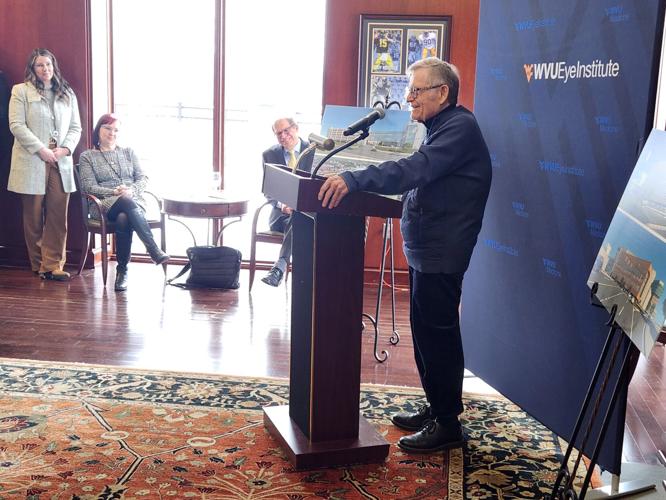
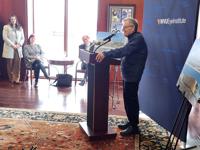
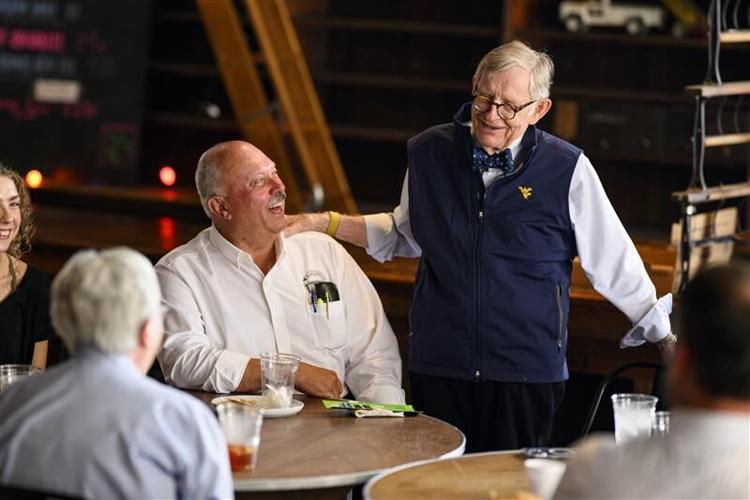





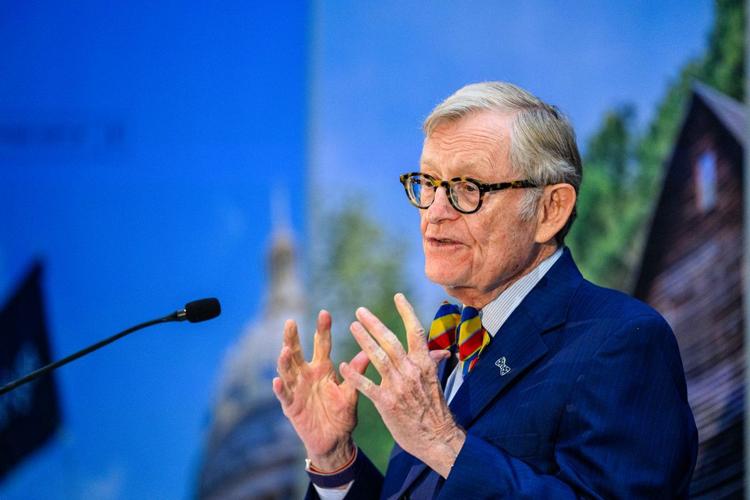

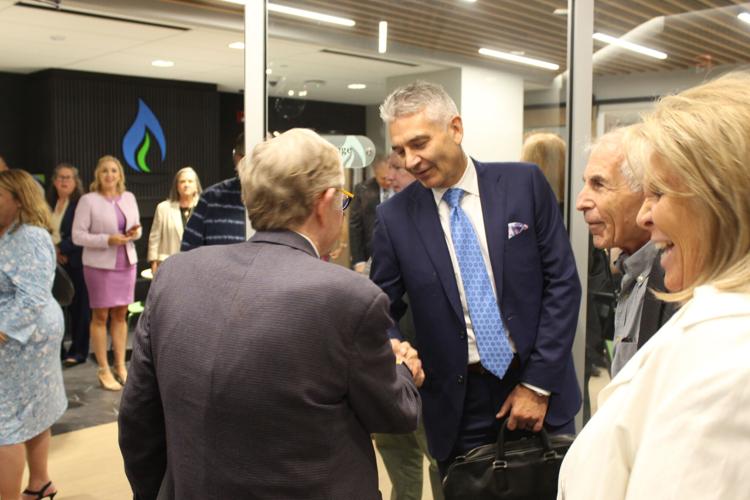
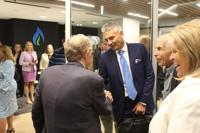



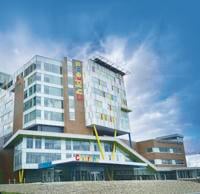
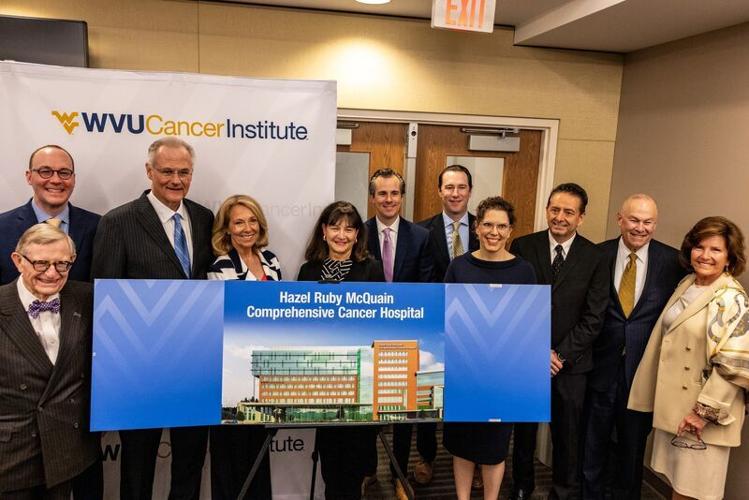
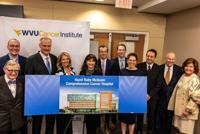
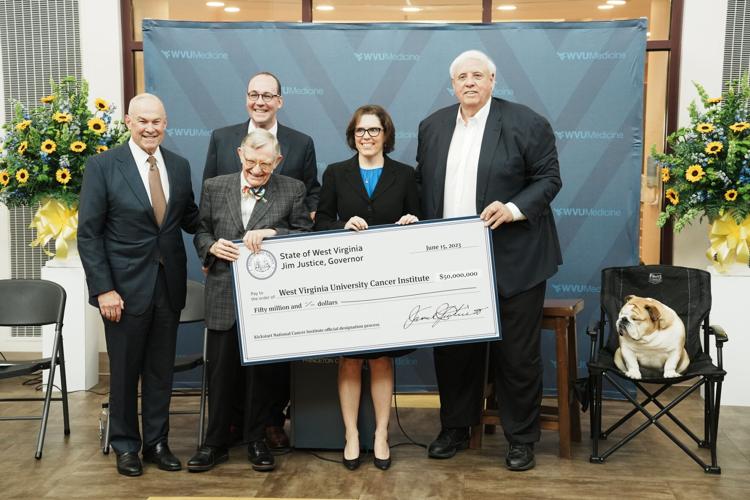
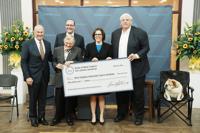



Post a comment as Anonymous Commenter
Report
Watch this discussion.
(0) comments
Welcome to the discussion.
Log In
Keep it Clean. Please avoid obscene, vulgar, lewd, racist or sexually-oriented language.
PLEASE TURN OFF YOUR CAPS LOCK.
Don't Threaten. Threats of harming another person will not be tolerated.
Be Truthful. Don't knowingly lie about anyone or anything.
Be Nice. No racism, sexism or any sort of -ism that is degrading to another person.
Be Proactive. Use the 'Report' link on each comment to let us know of abusive posts.
Share with Us. We'd love to hear eyewitness accounts, the history behind an article.